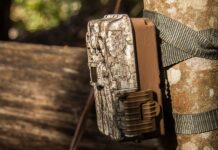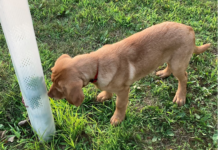ENGLEWOOD, Colo. – Mention organic food or fiber and you’re likely to get a wide variety of opinions.
You’ll find one portion of the population that wishes all products could be grown organically. Many more would buy organic products if they were only less expensive.
On the other hand, some American producers can’t help but equate organic consumers with environmentalists and urban consumers who wish to influence agricultural practices and policies.
For some, the growing demand for organic products even suggests that food and fiber produced under traditional practices is unsafe to one’s health and the environment.
Growing sector. Whatever one thinks of organic products, though, you can’t deny the growth in the market and what it means to producers who are looking for a premium price on their commodities. That goes for wool, as well.
According to a report from the Organic Trade Association, which represents the organic industry in North America, 28,510 pounds of organic wool was harvested from approximately 2,300 sheep raised organically in the United States and Canada during the 2001 season.
“I definitely see the organic wool market growing in the future,” said Sandra Marquardt, who coordinates the Organic Trade Association’s fiber council.
“We’ve had several years of growth in organic cotton, and companies are now looking at other organic fibers, including organic wool.
There are several companies currently offering products like organic wool socks, blankets and sweaters.
Sleep tight. Organic wool is also garnering a lot of attention from companies that produce bedding material. Because of the low-flammability characteristics of wool, it’s a desirable material to use inside futons, mattresses and even chairs in place of materials treated with fire retardent chemicals, Marquardt added.
At least a couple of companies are already offering mattresses made from organic wool, natural rubber and organic cotton.
Business side. Several factors drive companies and consumers to use organically grown fibers, said Matt Mole, president and owner of Vermont Organic Fiber Co. in Burlington, Vt.
In some cases, Mole said, companies are responding to consumer requests for products made with environmentally sound methods.
“Consumers are often interested in how the land and animals are treated during production and they want to know that their purchases are verified as being most sustainable,” he said. “Other times, consumers who have problems with allergies and sensitivity to chemicals are looking to organic foods and fibers as a healthier solution.”
Vermont looks West. Mole, who grew up on a sheep farm in Vermont, has been in the organic fiber business for nearly 10 years and started Vermont Organic Fiber Co. in 2000.
Through his business, Mole purchases approximately 50,000 pounds of grease wool annually from producers throughout the United States. He then contracts to have it produced into yarns, fabrics and batting, which is then sold to manufacturers in the textile and apparel industry.
Ironically, Mole said most of the wool he buys comes from western states, even though he lives in the Northeast.
Part of the reason is because western sheep are typically grass-fed and more likely to meet the standards for organic wool.
Organic standards. In order for wool to be certified as ‘organic,’ it must be produced in accordance with federal standards for organic livestock production, which state:
* Livestock feed and forage used from the last third of gestation on must be organic;
* Use of hormones or synthetic hormones and genetic engineering is prohibited;
* Use of synthetic pesticides (internal, external and on pastures) is prohibited;
* Producers must encourage livestock health through good cultural and management practices.
That means that sheep cannot be dipped in pesticides to control external parasites, and all pastures must have gone a minimum of three years since last being treated with synthetic chemicals.
Can’t overstock. Producers must also ensure that they do not exceed the natural carrying capacity of the land on which their animals graze.
“For some growers out West, meeting the standards isn’t as big of a problem, because they’re always moving the flocks around,” Mole said.
“On the other hand, it can be more of a challenge in the East, where pastures are smaller and the weather is typically more humid.
Mr. Clean. “Also, the cleaner the wool, the better,” Mole adds. “Since we’re not using carbonization and the wool has to be washed without the use of chemicals and bleaches, it’s important that the wool not have a lot of foreign material.”
Again, because of the weather, sheep in a number of locations in the Northeast are wintered indoors, where they pick up a lot of hay, debris and twine particles in the fleece, which makes them hard to process organically.
Mole said he does pay growers a premium, however, for their efforts to meet standards and produce quality fleeces that are in demand by manufacturers.
Need more producers. He expects the market to grow to the point he will be buying up to 250,000 pounds of organic wool in four to five years.
“Unfortunately, there’s not enough domestic production to meet that kind of demand,” he adds. “My preference would be to buy all the wool I need domestically and be able to get the range of fiber quality I need, including finer wool. But I don’t envision being able to do that real soon.”
Paper trail. Mole said producers are required to provide him with copies of their organic certification certificates, which are then passed on to the customers who are buying the material.
“I have to keep records of lot numbers, where the wool was stored and how it was handled all the way through the system,” he said.
He has to rely on the processors and mills to make sure there isn’t any cross contamination with regular wool and that all combing and carding machinery has been cleaned of nonorganic fiber prior to the processing of organic fiber.
“Usually, they start my wool through the system at the first of the week, after everything has been cleaned, and then switch back to nonorganic wool afterward,” he said.
‘Wonderful niche.’ Although the amount of organic wool produced in the United States is still relatively small compared to nonorganic wool, Bob Padula, wool quality improvement consultant to the American Wool Council, sees organic wool as a “wonderful niche” for producers who can make it work.
“If it works for growers, and they can capitalize on the organic wool market, I’d say, ‘By all means, go for it,'” he relates.
“The question is, ‘Can you meet the requirements for organic wool and increase profit without suffering an offsetting loss in production?'”
Meat income too. Sheep producers have the opportunity to produce not one, but two organic crops from a single flock. According to the OTC survey, 84 percent of organic sheep-related income came from the sale of organic lamb meat, with organic wool sales representing only 16 percent of income.
“The nice thing about it is that if you’re already producing organic lamb meat, you’ve probably met all the requirements for organic wool, as well,” said Organic Trade Association’s Marquardt. “It’s like getting a dual crop.”
“The other thing I’m looking at,” adds Padula, “is that of all the livestock species, we’re in the best position of any of them to be organic, especially in the ewe flock, where most of the wool comes from.
“Consequently, if we can put sheep out on pasture land that is organic, which includes a lot of natural range, we’re very close to being certified organic.
“If producers can make it work, it’s a win-win situation,” he said.
Get the details
* Organic Trade Association
www.ota.com
* Vermont Organic Fiber Co.
www.vtorganicfiber.com
* Maggie’s Organics, Ypsilanti, Mich.
www.organicclothes.com
* Indigenous Designs, Santa Rosa, Calif.
www.indigenousdesigns.com
* Mira/Organic Fiber Source, Concord, Mass.
www.miraorganics.com
* The Taos Center for Southwest Wool Traditions
www.wooltraditions.org
* Ecobaby Organics, San Diego, Calif.
www.ecobaby.com
Get 4 Weeks of Farm and Dairy Home Delivered









